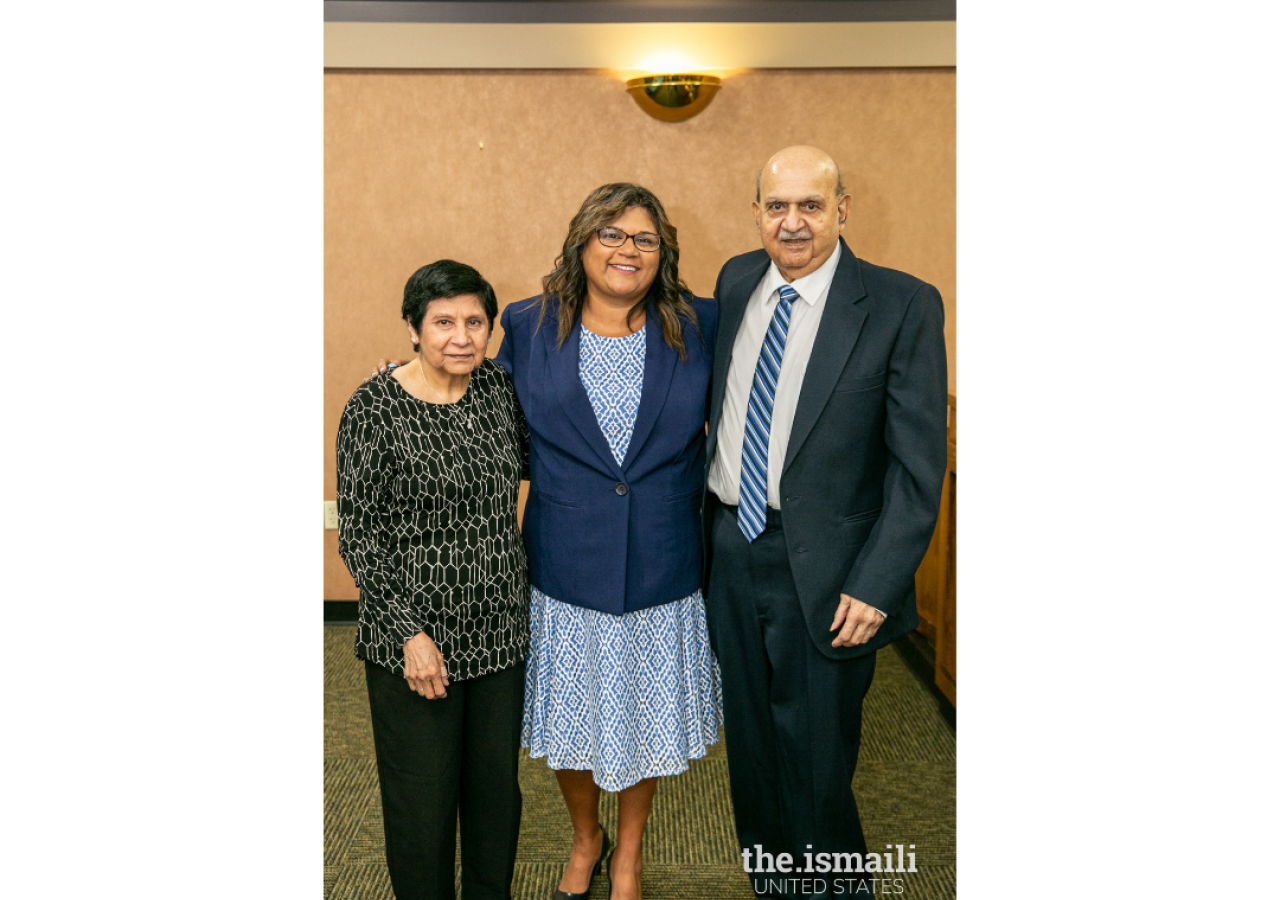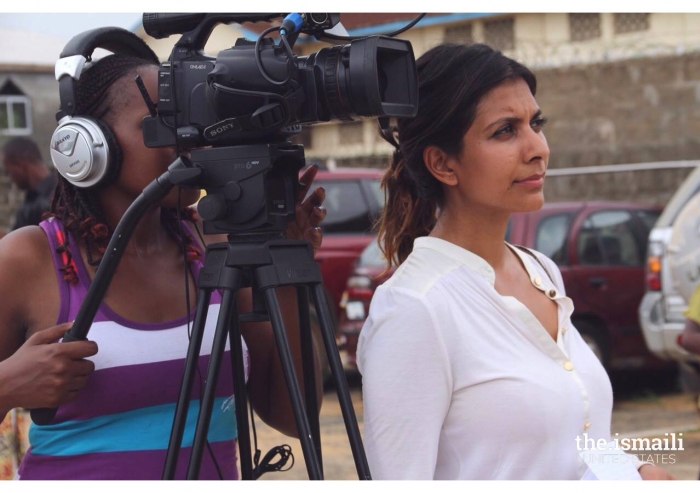“Being an Ismaili is not just participating in ceremonies and attending Jamatkhana. It’s how you live your life. It’s who you are as a person, and it lays a solid foundation for everything you do in your life,” says Rehana Adat-Lopez, the first Ismaili and female Asian Judge appointed by the Governor in the State of Indiana on February 25, 2022. Rehana currently serves on the Lake Superior Court.
Rehana was born in Uganda. When she was two years old, her family fled from East Africa to escape persecution by President Idi Amin. The Adat family was sponsored by a small church in Fort Wayne, Indiana, which is where they settled and rebuilt their home. Rehana’s father worked as a laborer, and her mother worked part-time at a supermarket warehouse while also caring for Rehana and her sister.
At the time, there was a small Jamat in Fort Wayne, composed mainly of students who had come from Pakistan to study. The Jamatkhana was open Fridays and Sundays, so those were the days Rehana and her family attended without fail.
“We never missed Jamatkhana,” she recalls. “Even If you didn’t get your homework done, it was your responsibility, and you had to do it after Jamatkhana. You knew it wasn’t a question - it was a way of life for our family.”
Though that center is now closed, the sentiment of the close-knit community and the values instilled in Rehana left a mark on her and still remain today.
As a young adult, Rehana pursued her undergraduate studies at Loyola University, Chicago, and a degree in law at Valparaiso University.
Rehana describes how her parents emphasized the importance of getting an education because it is the one thing that no one can take from you. “It’s what’s in your mind,” she said. “Because of that, I believed a career in law would offer me lots of opportunities to help other people that couldn’t otherwise afford an attorney.”
At the start of her law career, Rehana worked in private practice while also carrying out pro bono work. She was also very involved in her local legal community, serving on the board of managers with the Lake County Bar Association and as a member of the Women Lawyers Association.
Judge Rehana Adat-Lopez

After she got married and had children, Rehana took a position with the Indiana Department of Child Services as an in-house attorney. She worked for the Court-Appointed Special Advocate (CASA) program, representing children who were adjudicated, abused, and/or neglected. She began as an attorney for the CASA program and eventually became the director, managing four courts and 18 employees.
In 2021, she applied and was selected by the Governor for the opening on the bench following the death of Superior Court Judge Diane Ross Boswell.
“It’s a stressful process,” she recalls laughingly. Interviews with local officials were open to the public and conducted with 50-100 people in the gallery. Candidates who were fortunate to make it to the final panel then met with the Governor’s team for further interviews. But, Rehana says she was blessed and ultimately received the prized congratulatory call from Gov. Eric Holcomb himself.
Now almost a year into her current role as a judge, Rehana explains that her previous work in Juvenile Court has helped her significantly. Having witnessed many tragedies and horrible cases, she was able to learn more about empathy and people’s circumstances.
“You learn a significant amount about mental health and substance abuse issues. Those issues can really cloud who a person is, and it obviously affects their behavior. For me, knowing there are underlying reasons for a person’s behavior gives me more patience and understanding in my current career,” she says.
One of the most important aspects of Rehana’s role as a judge is making sure that any person who enters her courtroom feels comfortable. “You really need to make each individual feel as though they’ve been heard. Win or lose; they have to be able to present their case, especially when you have self-represented litigants,” she says.
Being aware of an individual’s mental health issues is crucial because stress can affect their behavior, explains Rehana. “It is not just the litigants, but it can also be the attorneys,” she says. “I always try to keep in mind - that the legal process is very emotional and can be mentally taxing. It’s usually when people are at their worst, and most people do not want to be involved in court proceedings.”
Rehana adds, “Diversity in the courtroom is also very important. Everyone should feel comfortable. The majority of the system does not reflect the diversity of litigants and attorneys, so that’s always an important aspect of it as well.”
Striving in her career in accordance with Ismaili values is important for the Judge. “Being Ismaili is a way of life, not just a religion,” she says. “In my mind, it is a part of everything I do - working hard, being honest, helping people, being fair... All the values that you take from our religion and way of life, I’ve used throughout my entire career.”
With a high-stress job, Rehana also emphasizes the importance of taking care of one’s mental health and achieving a work-life balance. Outside of work, she prioritizes spending time with her two sons, Aiden and Tristan, her husband, Steve, and her parents, who also live with them. This type of balance is crucial, she says, in order to be the best she can be to carry out her work.
Rehana credits her parents and religion for helping her achieve this monumental success.
“It’s really through [my parents’] hard work and the opportunities I was given because of their hard work and how important it was to them for me to get an education. I also firmly believe that because of my faith, I am where I am today,” she says.









